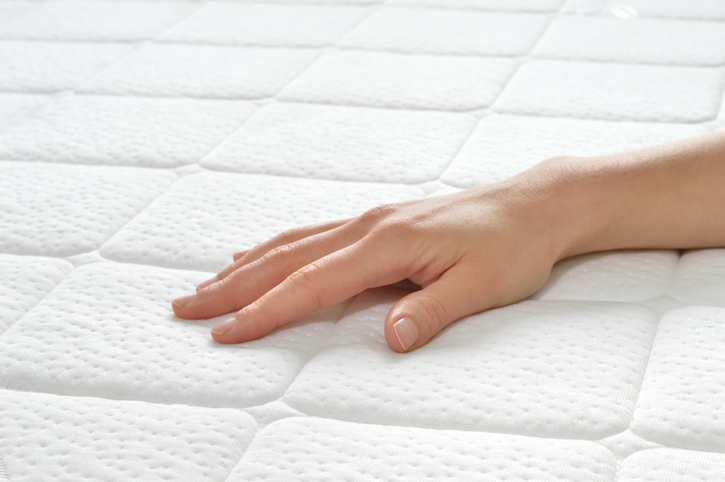
10 Tips To Prolong Mattress Lifespan
Your mattress is one of the most important items you can buy for your home. The right mattress will provide you with comfort and support — promoting healthy, refreshing sleep. For these reasons, it’s important to invest in a good-quality mattress, even if it means spending a bit of extra time and money finding the right one that properly suits you. Ultimately, you want to get the most for your money by making sure your mattress lasts as long as possible.
If treated properly, a good mattress can have a lifespan of up to 10 years. Here are 10 essential tips for prolonging the longevity of your mattress and keeping it comfortable — helping you to sleep more easily.
1. Make sure your mattress has the right support
Just like you, your mattress needs proper support if it is to function at its best. An unsupportive bed base can result in the mattress sagging in the middle, which will weaken the mattress and shorten its lifespan. Generally speaking, an innerspring mattress will require the right box spring to go with it.
A memory foam mattress usually needs a solid bed base of an appropriate size. This will offer the mattress the essential support it needs to maintain its structure for as long as possible.
2. Rotate your mattress
Some modern mattresses are designed to be kept in the same position, but most still require rotating or flipping from time to time. If you sleep in the same position every night, this can cause the mattress to wear more in one spot than everywhere else. Over time, your mattress could start sagging right in the spot where you sleep. This makes for a pretty uncomfortable night!
Check your manufacturer’s instructions, but most mattresses will benefit from being rotated or flipped every few months. If you have a memory foam mattress, you will get the most from it if you rotate it 180 degrees three or four times a year. An innerspring mattress can be rotated and flipped to keep it functioning at its best for longer.
3. Remember to vacuum your mattress
Your bed mattress has a lot to deal with. You might not be able to see them physically, but sweat, dust mites and other allergens can gather in your mattress, particularly along the seams. This creates an unhealthy environment for you when you sleep, causing allergies as well as contributing to damaging the integrity of your mattress.
Regular vacuuming can help to prevent the build-up of nasty pollutants. Try to vacuum your mattress every time you rotate it, using the upholstery attachment on your vacuum cleaner for maximum effect.
4. Clean up any spillages
If you spill food or drink on your bed, it can easily soak through your sheet into the mattress. Washing your bedding simply isn’t enough — you also need to clean your mattress straight away to prevent stains and bacteria. Most mattresses can be cleaned with mild soap and warm water carefully applied with a sponge, but always refer to your manufacturer’s instructions in case specialist cleaning is required.
Don’t use harsh chemical cleaners, particularly on memory foam mattresses, as this can affect the condition of the foam. Also, you should make sure your mattress is completely dry before you make your bed again so the mattress doesn’t stay damp.
5. Use a bed protector
A bed protector, also known as a mattress protector, is one of the most useful devices you can own. Using a bed protector from when you first get your mattress is probably the easiest way to ensure it lasts as long as it should.
There are two main types of bed protectors:
- Fitted — These are elasticated and fit over your mattress like a fitted sheet.
- Encasement — These fit all the way around your mattress and fasten with a zip.
Both are available in a wide variety of fabrics, including waterproof options.
If you use a mattress protector from the start, you can avoid plenty of issues with spillages, allergens, bacteria and mould, keeping your sleeping environment healthier and preserving the lifespan of your mattress. Just remember to clean your bed protector frequently too.
6. Don’t jump on your bed
We never grow out of that “new bed” excitement. Whenever we get a new mattress, it’s hard to resist the temptation to jump on your bed, however old you are. However, it is important not to give in to the urge! Jumping on your bed is one of the quickest ways to damage your mattress. It can also have a major impact on your box springs and the safety of your bed frame, so it’s potentially a very expensive habit as well as dangerous.
7. Check your bed frame
While we’re talking about bed frames, when was the last time you checked yours? A new mattress or box spring can take between four and six weeks to settle properly. After this time, it’s important to check the frame and legs of your bed to see if anything needs tightening. If the legs are loose, this can put a strain on the entire frame of your bed, which over time will cause damage to your mattress.
8. Keep your sheets clean
Many people don’t wash their bed linen as regularly as they should. If your sheets are dirty, your mattress will also become contaminated with sweat and bacteria. Ideally, you should wash and change your bed linen every week to two weeks if you want to keep your mattress in prime condition. Plus, nothing is quite as satisfying as climbing into a clean, fresh-smelling bed.
9. Take care when moving your mattress
If you are moving home and you need to transport your bed mattress, or even if you are collecting one brand-new from the store, it is essential to move your mattress carefully. If you possibly can, try and get hold of a purpose-made mattress bag — these tend to be heavy-duty enough to protect mattresses from any unfortunate incidents. If you don’t have one of these, make sure your mattress is wrapped securely in plastic.
Try to keep your mattress on its side in an upright position while moving it, and make sure it doesn’t get bent or folded.
10. Always keep your mattress tag
Good mattresses tend to come with warranties. If something should go wrong with your mattress that wasn’t your fault, you will need the tag to make a claim. However, if you follow these tips to take care of your mattress, and always abide by the manufacturer’s instructions, you will be unlikely to need your warranty.
Find out more about mattress care from the bed experts
If you want to know more about getting the most from your mattress for many years to come, you can find plenty of information in our helpful blog. Or, if you are looking for a new bed or mattress, please contact us on 1800 940 596 to discuss your needs. Our team will be happy to help.





